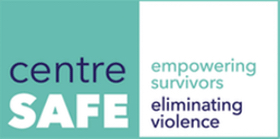February 17, 2014
Healthy Relationships | It’s always a good time to talk to your teens
What are the dreams you have for your children? If you are like most parents, your hopes and dreams for your kids probably center on them growing into healthy, well-adjusted, successful (by whatever definition you use) adults. To support and encourage their healthy development, you may have talked to your kids and teens about alcohol and drugs, the dangers of the Internet, bullying, where they might go to college, even (tough as it is) sex.
But if you are like three out of four parents, you probably haven’t talked with your teens about violence in dating relationships. It’s time to talk.
The statistics are frightening. A 2008 study found that one in three teenage girls has experienced physical, emotional or verbal abuse from a dating partner — a figure that significantly exceeds other types of youth violence. Even more disturbing is the Centers for Disease Control and Prevention’s 2007 survey of 15,000 adolescents in which 10 percent indicated they had suffered physical abuse (hitting or slapping) by a romantic partner — and almost 8 percent reported they had been forced to have sexual intercourse.
To bring those numbers closer to home, think about the high schools in our area. In a high school of 1,500 students, an estimated 150 students are being physically abused by a dating partner. In a high school of 3,000, that number increases to 300.
Ask the teenagers in your house when they last heard anybody at their school talk about dating violence. Our children learn what adult relationships look like from watching the adults in their lives — most often their parents. While the media certainly has an impact on our kids’ perspectives, study after study has shown that it is what parents say and do that make the most lasting impressions. We need to talk to our teens and their friends about what healthy relationships look like. We need to show and say to our teenagers that healthy relationships are based on respect and trust. That healthy relationships are nurtured by a community of friends, not threatened by it. And that violence of any kind — emotional, verbal or physical — is absolutely unacceptable in dating relationships.
But it isn’t enough if it only comes from parents. We need to be sure that the other adults in teens’ lives are reinforcing this message — in their schools, in church youth groups, in their extracurricular activities and sports. We should go to the National Teen Dating Abuse website with our teens (be prepared for significant eye-rolling and exasperated sighs), bookmark it, and let our teenagers know in no uncertain terms that help is available for them and for their friends. Confidential and safe resources for teens experiencing dating violence are available at the National Teen Dating Abuse Helpline at 866-331-9474, www.loveisrespect.org, or the Centre County Women’s Resource Center hotline (877-234-5050) and website (www.ccwrc.org).
Let’s give our teens the best gift ever — our encouragement and support as they discover what healthy relationships can be.
That’s what true love looks like.
Anne K. Ard is the executive director of the Centre County Women’s Resource Center, 140 W. Nittany Ave., State College. Contact her at 238-7066 or at annekard@ccwrc.org.





